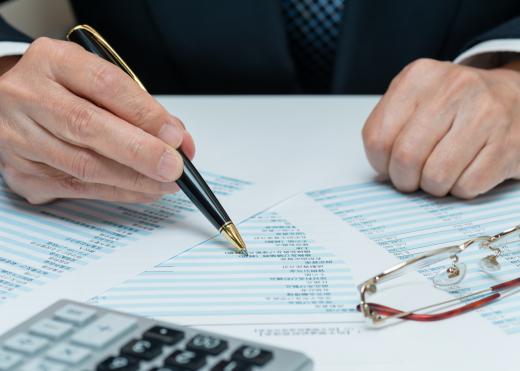At WiseGEEK, we're committed to delivering accurate, trustworthy information. Our expert-authored content is rigorously fact-checked and sourced from credible authorities. Discover how we uphold the highest standards in providing you with reliable knowledge.
What is an Event Study?
An event study is a research methodology used to determine if financial markets have a statistically relevant reaction — meaning one that has positively or negatively affected a company’s stock prices — to a past corporate event or an announcement of a future event. It is classified as a type of econometrics, or economic measurement, that uses a combination of mathematical economics and economic statistics and theory. The underlying hypothesis of an event study is that the magnitude of the change in performance around a specified event can provide a measure that can predict the effect on shareholder value during similar events at other companies.
The event that affects a company's stock value may be within the company's control, such as the announcement of a merger, or outside the company's control, such as the passage of a regulatory act by the government that will have a negative impact on the company’s future operations. A typical event study would analyze the stock price reaction of the same type of event, such as the issuance of a stock option, experienced by multiple companies. The actual date of the issuance of the option would differ across companies but would be standardized in “event time,” where an event horizon would be established and the stock prices during the event time window would be analyzed.

The reliability of an event study has typically hinged on the length of the event horizon used in the study. Common research theory in this area holds that short-horizon event studies are more reliable than long-horizon event studies in which the study cannot control for marketwide effects over longer periods of time. There is an efficient market hypothesis that says if information is going to affect a stock price at all, it will do so immediately, so the longer the window of study, the less likely it will be that the volatility in stock prices can be directly attributable to the release of information.
There is a basic three-step format for an event study. First, pick an event that has happened across multiple corporations and establish a period of time before and after the event to serve as the event window. Next, analyze the stock price changes and any change in the marketwide index for the corporations during the event window. Last, run a statistical analysis regarding whether any change in price is abnormally large or small compared to the usual returns for those corporations and controlling for marketwide effects and external influences.
AS FEATURED ON:
AS FEATURED ON:











Discuss this Article
Post your comments